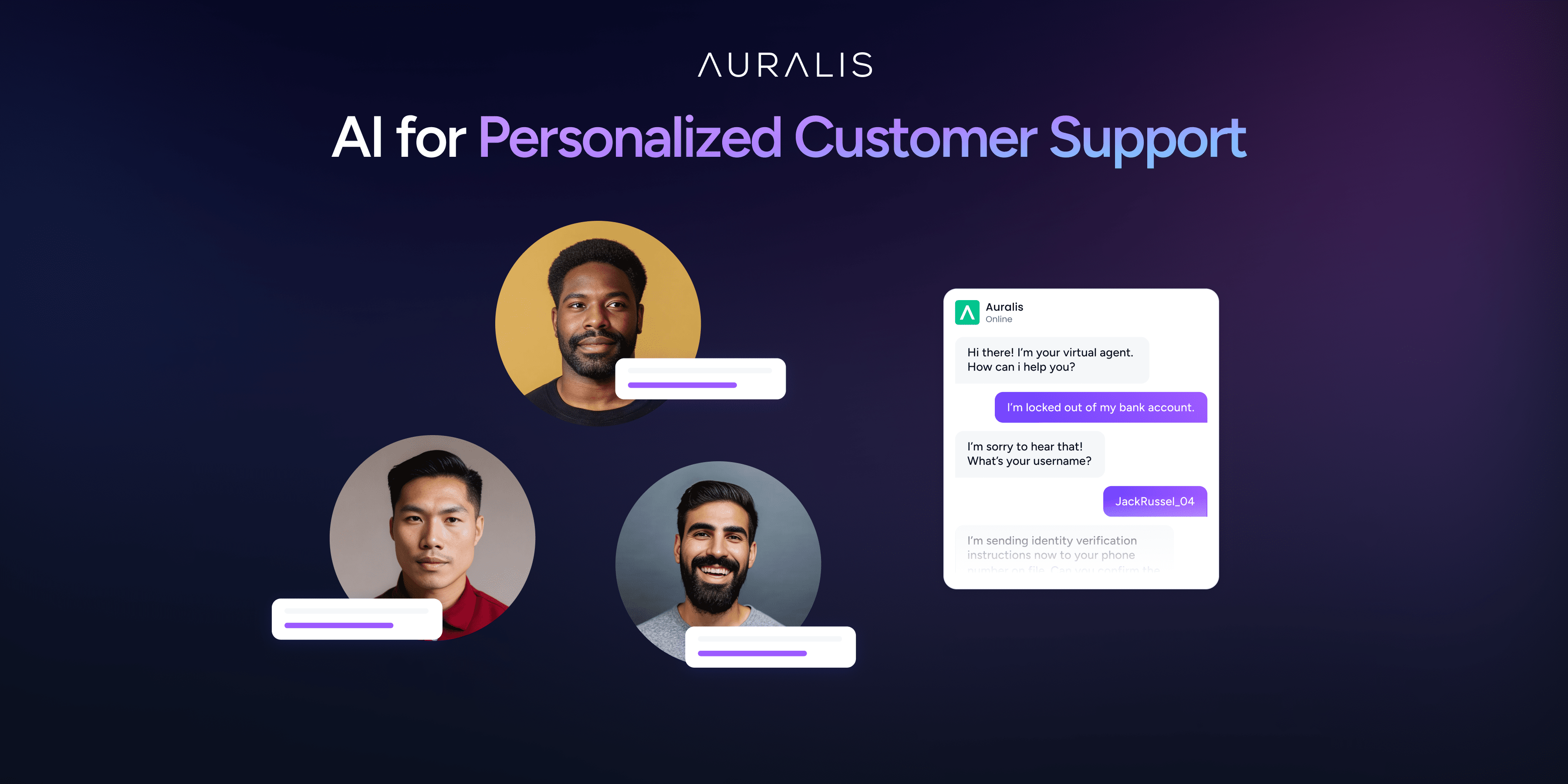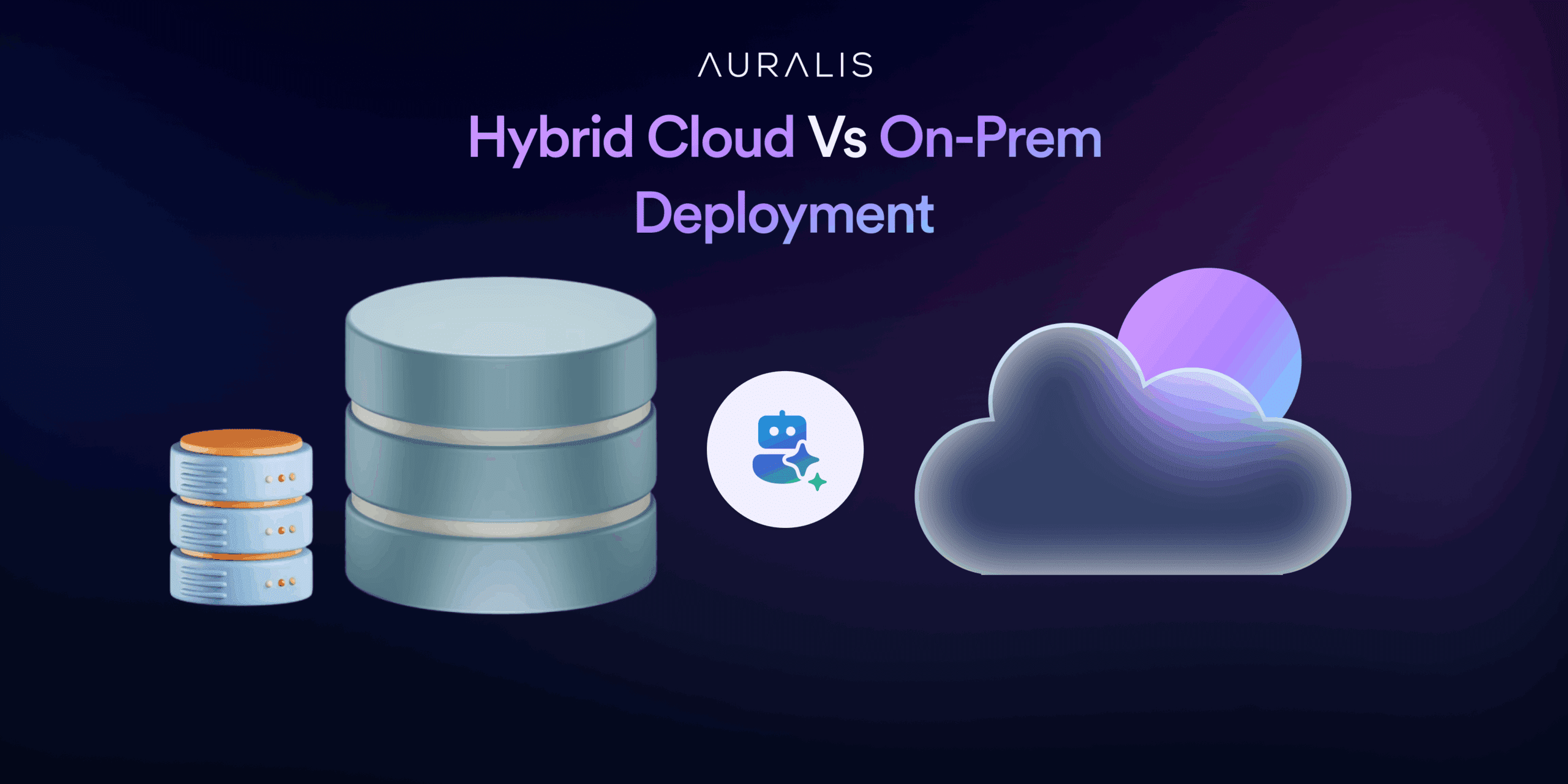Customer support is no longer about just being proactive at answering queries. The new-age consumer now expects businesses to understand them better and personalize every interaction across the journey.
This is where the importance of personalizing customer support experiences comes in – but it’s easier said than done.
In this post, we’re going to discuss why personalized customer support is important, the common challenges, and how AI helps with the same.
Table of Contents
Why is personalized customer support important?
Almost 81% of customers prefer companies that offer a personalized experience during their interactions. When they feel more understood, they’re not just more likely to share more insight into their preferences but also purchase from the business.

Here are the key benefits of personalization in customer support:
- Better customer engagement – When you personalize the support communication, customers become more comfortable sharing information, creating a better flow of conversation during the interaction.
- Increased customer satisfaction – Being able to gather more information about the customer helps address their queries with more context. This leads to better support resolution and increased satisfaction levels.
- Higher customer retention – With more support requests tackled successfully, customers become more likely to stick with the business’s products/ services.
- Improved brand loyalty – Personalized support experiences leading to product/ service stickiness leads to higher brand loyalty; which also further helps with word-of-mouth referrals.
- Better cross-department collaboration – When interactions are more engaging, businesses can get a deeper understanding of their customers which can lead to improved collaboration across departments.
A study by McKinsey has found that personalization of customer interactions generates 40% more revenue.
What are the challenges in customer support personalization?
While there are so many benefits of personalizing customer support interactions, here are the challenges that businesses often face:
- Data management – Personalization relies on customer data but organizations often struggle to create centralized repositories across departments.
- Privacy concerns – Gathering customer data for personalization requires adhering to several regulations like GDPR and CCPA even if they are consumer-initiated.
- Consistency – Providing cohesive support experiences across multiple channels and in different languages can be challenging.
- Responsiveness – Personalization requires real-time data processing which can be hard to manage manually.
- Resource intensive – Implementing and running personalized support interactions require setting up integrations with multiple systems, data streams, and platforms
How can AI help with personalized customer support?
Now here’s how companies are addressing the need for personalization in customer support with solutions like Auralis AI:

1. Contextual responses
AI customer support tools have the ability to process large sets of data to uncover more insights. This includes information on customer behavior, preferences, and pain points. This can help human agents and AI co-pilots get the complete picture of a customer’s journey and respond to queries with more context.
For example, AI can trace and read a customer’s previous interactions. They can then address their query based on their preferred mode of resolution – human assistance, bot walkthrough, or self-service.
2. Personalized interactions
With deep insights into every customer from across departments, AI can help make conversations more personalized. This includes their ability to recommend or suggest products/ services based on known preferences, purchase patterns, or even experiences.
For example, if a telecom company sees a customer probing about their bill and available bandwidth often, they can use AI to suggest relevant plans that suit their requirements without adding to their spending. Or they could suggest a switch in plan to avail more savings.
3. Proactive support
With AI’s ability to analyze patterns in customer data, businesses can anticipate customer needs or issues before they occur. This allows companies to proactively reach out with support solutions, boosting engagement and reducing the number of incoming queries over a period of time.
For example, an eCommerce company can use predictive analytics to identify customers who are more likely to abandon shopping carts. With this insight, they can set up automated follow-ups to assist them with shopping assistance or time-sensitive discounts that encourage them to complete the purchase.
4. Sentiment analysis
With Natural Language Processing (NLP), AI has the ability to detect the emotional tone in a customer’s message irrespective of the language they’re interacting in. This helps categorize conversations into – happy, neutral, frustrated, and other emotions, helping the support teams and bots tailor their responses for empathy and efficiency.
For example, a customer reaches out for faulty subscription billing. If they express frustration over managing budgets with the solution and ROI, the responses can be more empathetic along with a hand-off to human agents to provide them guidance on how to make the most out of their purchases.
5. Agent assistance
Another way AI can come in handy is to offer timely assistance to human agents. With their ability to trace documents across different systems and platforms, they can do the heavy lifting of sifting through information that helps agents respond to queries faster.
For example, an agent is addressing a complex query about the integration of two products. AI co-pilots can fetch the information on both products, how to set up or troubleshoot the integration, and suggest the best-suited response to the agents. This saves the time they need to spend on finding the right documents to assist the customer.
Also read: How AI co-pilots reduce agent workload and stress
6. Localization
It can be hard for businesses to hire and scale a support team across different regions they are targeting. This is where AI’s ability to offer multilingual support comes in, which further adds another layer of personalization for customers.
For example, if AI can identify the location of a customer, the chatbot can give them the option to select the language they’d like to proceed in. This helps the customers share their concerns easily and get to the point of resolution with a better understanding of what the business has to say.
Best practices for setting up AI-powered customer support personalization
To achieve the right level of personalization in customer support queries, businesses need to follow a few best practices. Here’s what we recommend to those using Auralis AI:
- Implement custom support workflows that are more tailored to your business requirements instead of ready-to-use templates
- Integrate your customer support tool with your CRM, service desk, marketing and analytics tools, knowledge base, and other solutions from the tech stack
- Ensure your knowledge base and content inputs are up-to-date with product/ service information
- Ensure your AI customer support systems are designed to comply with data protection regulations and prioritize secure data handling practices
- Provide omnichannel support to establish more touchpoints for your customers and offer a consistent experience
- Train support agents to collaborate with AI tools like chatbots, co-pilots, recommendations and more
- Create a feedback cycle to gather inputs on how your team and customers feel about interacting with AI-powered automation
- Set up a regular audit cycle to monitor the performance of your customer support automation workflows
Also read: Best practices for implementing AI-powered support automation
Conclusion
Automations are helping businesses scale customer support with ease.
But it’s AI that’s helping them scale every customer interaction with more personalization by tapping into the plethora of data they already have.
As customer expectations from support evolve with time, so should a business’s approach to resolving them.
Want to know how you can personalize customer support interactions? Book a demo of Auralis AI today.











